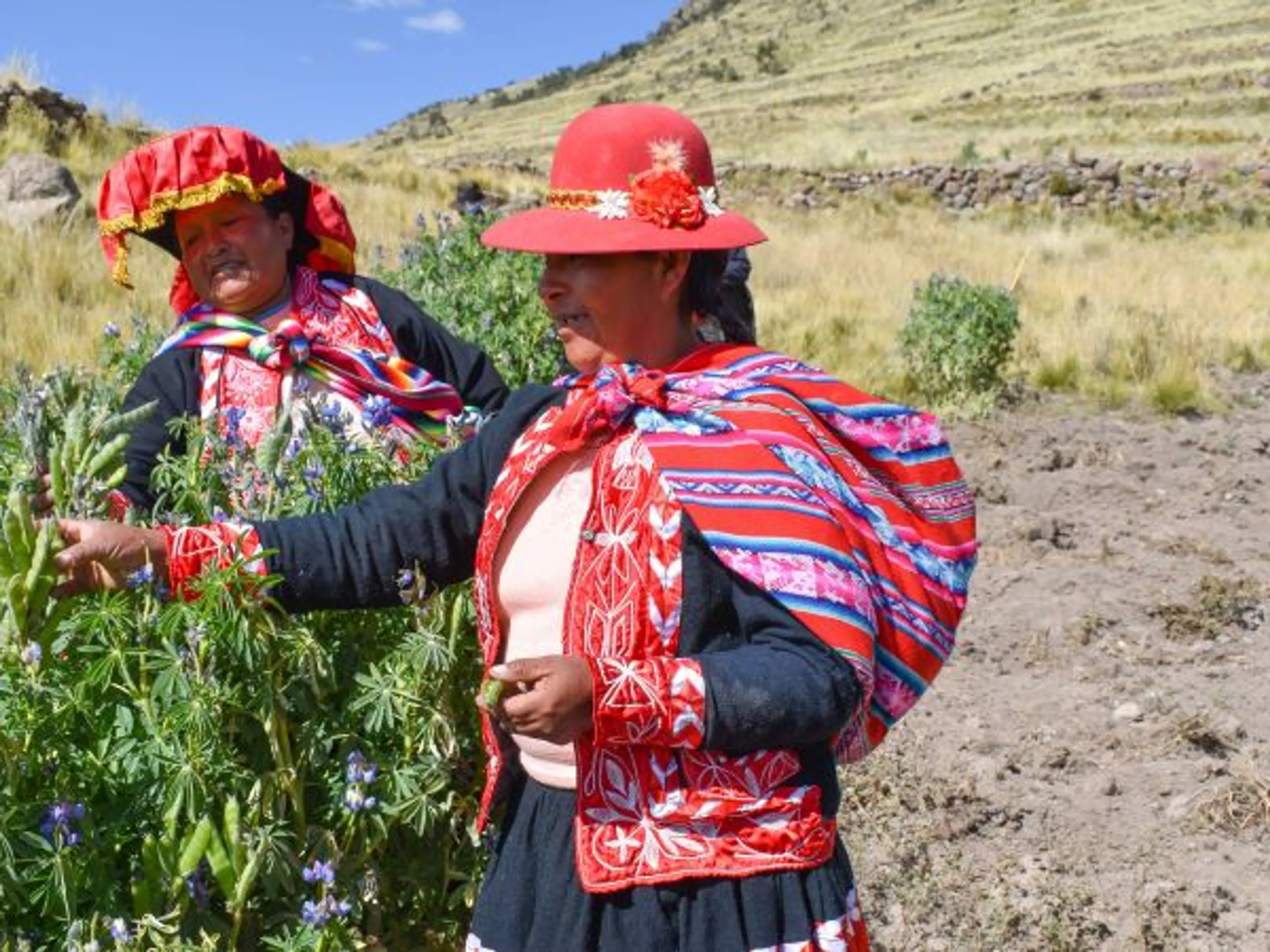
Rural communities in Peru are adapting to climate change and protecting their environment.
CAFOD has worked with local partners and communities in Peru since 1968. We work with partner organisations to support communities to defend their human rights, tackle environmental concerns and achieve fair access and control of natural resources.
Why CAFOD works in Peru
Peru is one of the most vulnerable countries in the world to climate change, especially because of the country’s reliance on its glaciers, which are disappearing at an alarming rate. Peru’s glaciers provide water for drinking, raising crops, livestock and generating energy.
As a result of Peru’s melting glaciers, water supplies are already declining and will continue to drop significantly over the next 20 years. Peru also faces natural hazards such as earthquakes and volcanic eruptions.
While Peru has made good progress in reducing poverty, around 20% of people continue to live in poverty. Poverty and few job opportunities in rural areas mean that many people are moving to the fringes of Peru’s cities in search of a better life. Those in the peripheries often live in very poor quality and precarious housing that is very vulnerable to natural disasters like earthquakes. Extreme poverty is found in both rural and urban areas, and in recent years, poverty in urban areas has increased.
Women and girls in Peru often face high levels of gender-based violence. Women, and particularly indigenous women, often have fewer educational and economic opportunities compared with men, which means that women’s jobs are often low-paid and insecure.
The mining industry plays a very important role in Peru’s economy, particularly the extraction of minerals such as copper, gold and silver. Mining is often responsible for widespread social and environmental damage, which can lead to water pollution and health problems among local communities. Those who speak out against the negative effects of the extractive industry and campaign to protect their environment and defend their human rights often face threats and attacks and even death.
Our work in Peru
CAFOD has worked with local partners and communities in Peru since 1968. Together we are:
Empowering communities in rural and urban areas to achieve fair access to and control of natural resources like water, land and territory in the context of mining and climate change.
Working with communities to support them to tackle environmental concerns relating to mining and supporting communities to put pressure on their government and businesses to respect human rights.
Empowering children and young people to be active in their communities and work with local authorities to make their neighborhoods a safe and nurturing place to grow up.
Supporting indigenous women in the Amazon to defend their rights.
